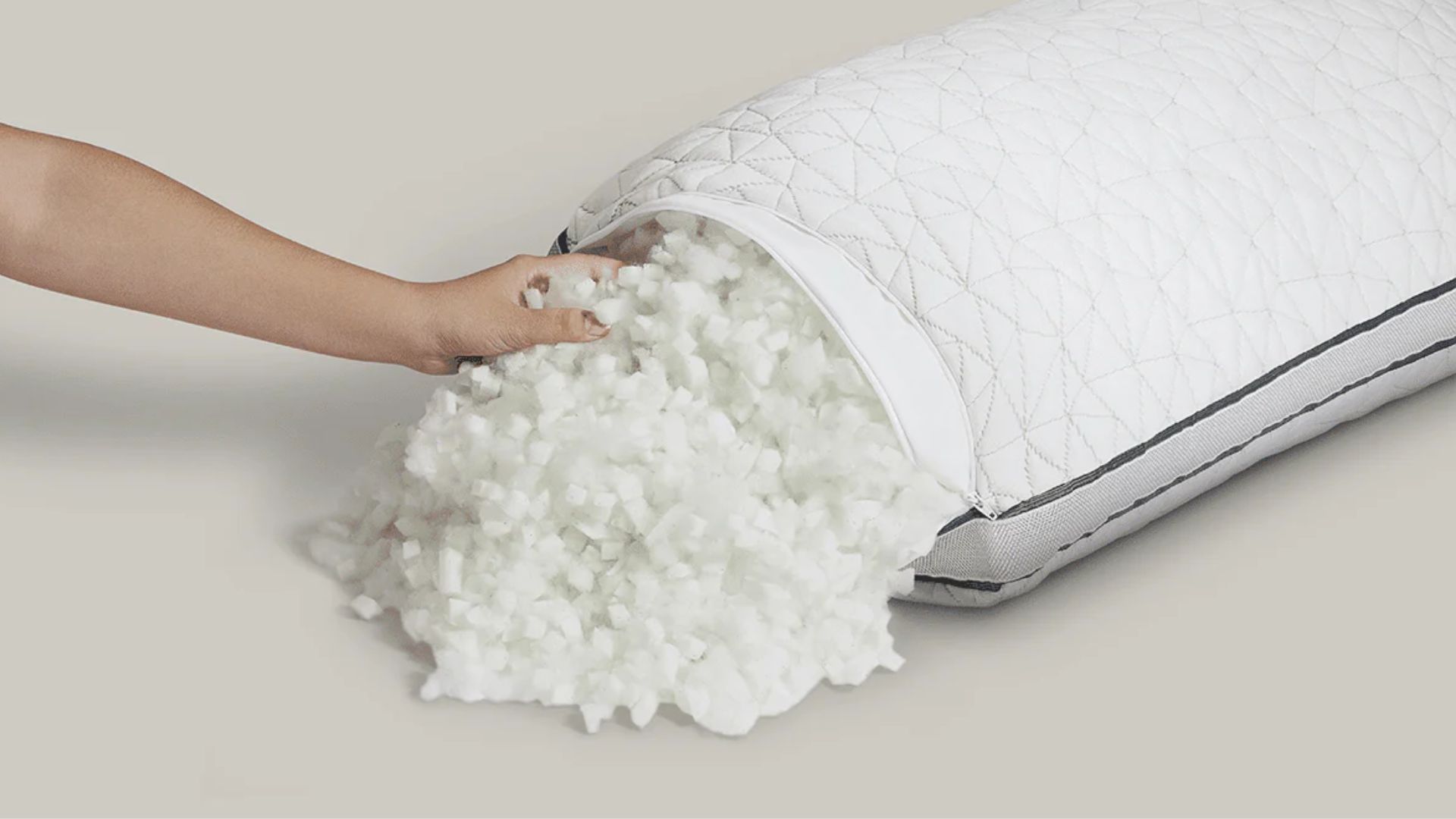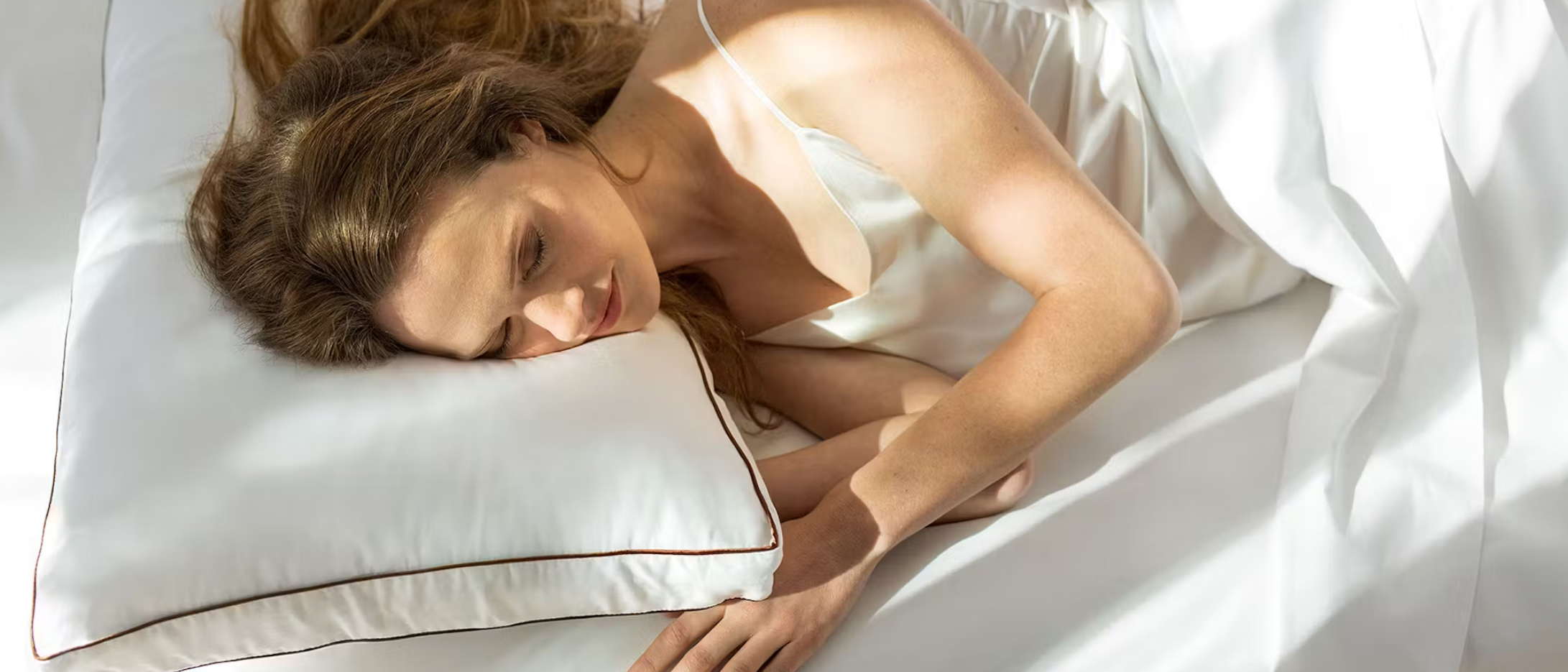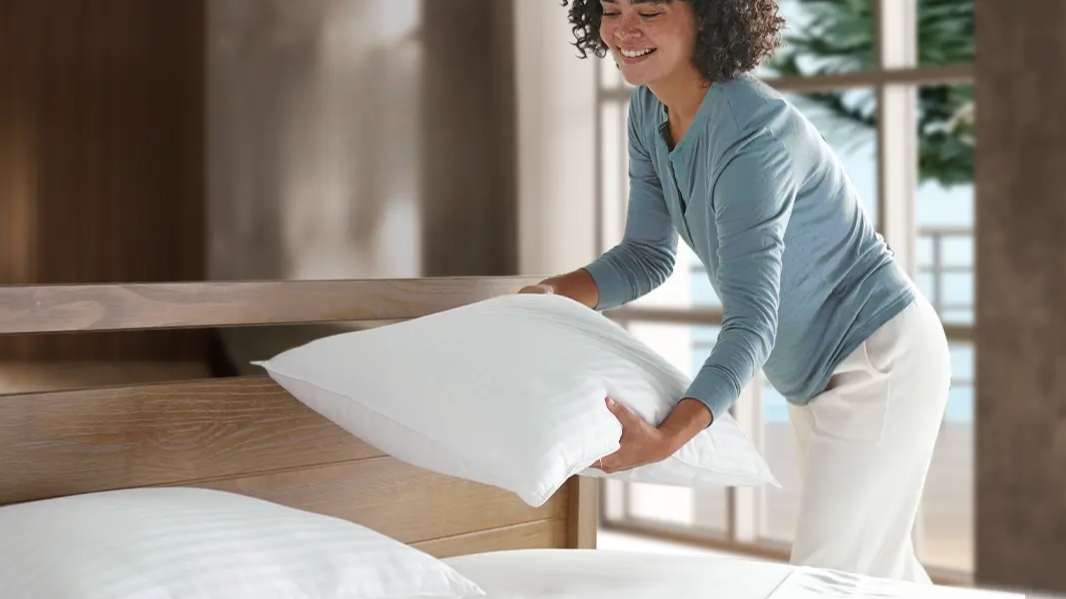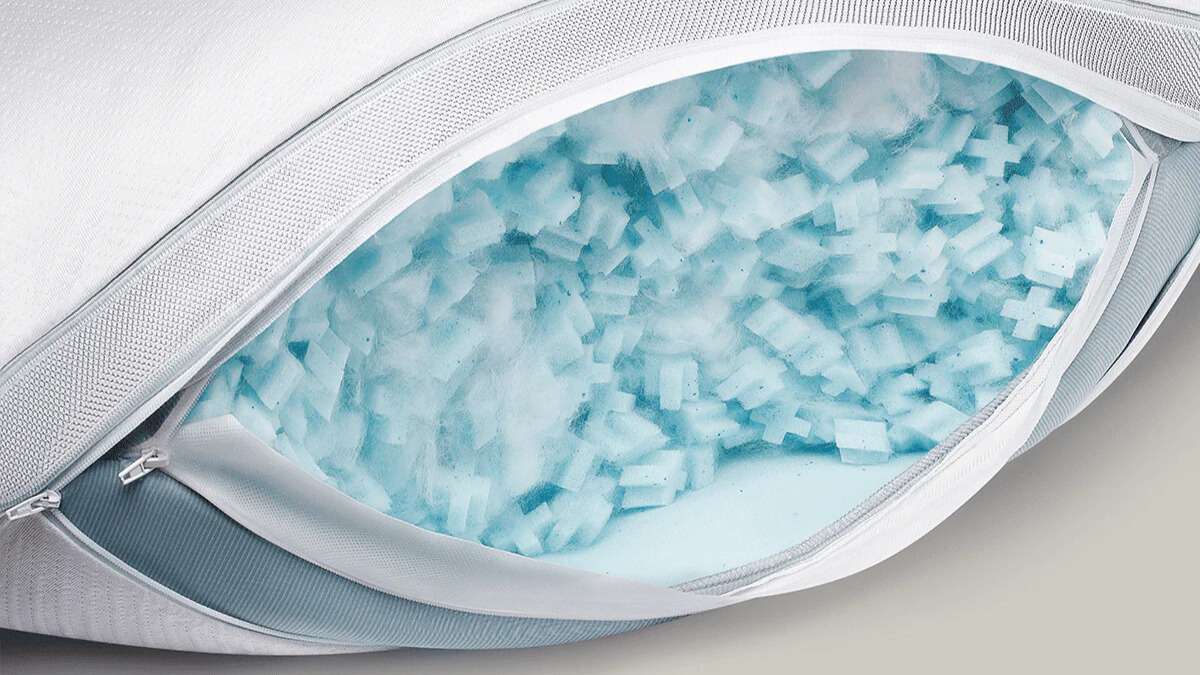
If you're a hot sleeper who experiences recurring night sweats, your pillow could be to blame. Choosing a pillow with temperature regulating filling is the key to a cool night’s sleep. But which pillow fill is best?
In the same way that the best mattresses for all sleepers and budgets provide a high degree of temperature regulating properties, the right pillow for you can dissipate heat and wick away moisture, preventing overheating while you sleep.
If you are shopping for a new pillow, our guide to the best pillow includes options for all sleep positions and needs. If sleeping cool is your main concern, we've rounded up the coolest pillow fillings for a comfortable night's sleep.
What is the best filling for pillows for hot sleepers?
Pillow filling varies from product to product, and each fill has its pros and cons. If you're someone who is prone to sleeping hot, these are the five pillow fillings you should opt for...
1. Down
Down pillows are are made from the feathers of a bird's undercoat and are a popular choice for hot sleepers, thanks to their breathability, temperature regulation and ability to wick away moisture. Unlike some cooling fill, down pillows maintain a stable temperature, due to their naturally insulating properties. However, due to the production process and premium materials used, down pillows are on the pricier side.
2. Latex
Latex is renowned for both its responsive support and cooling comfort. Natural latex is derived from trees and is perforated for improved breathability and moisture wicking, making them a great option for anyone who experiences night sweats. While latex pillows tend to come with a premium price tag, they are also incredibly durable.

3. Wool
Wool is another natural material that boasts excellent temperature regulating properties, helping you sleep comfortably all year-round. That means it will keep you warm during chilly winters and cool during the hot summer months. However, wool pillows can lack support, as the fabric tends to lump up or flatten over time. Instead opt for latex or down or blends of different materials for a cool night's sleep and sturdier support.
4. Cotton
The list of naturally cooling pillow fillings would be incomplete without the star plant-derived fabric; cotton. Cotton pillow fills are supportive enough to alleviate conditions like shoulder-stiffness or neck pain and are most importantly, lightweight and breathable. As well as being moisture wicking and heat dissipating, organic cotton pillows are naturally resistant to allergens.
5. Down-alternative
Down-alternative filling is designed to mimic the qualities of natural down, even suitable for those prone to down-allergies. However, hot sleepers should pay attention to the kind of down-alternative fill they choose as these can be made from both synthetic (polyester) and natural (cotton, wool or silk) materials. We recommend opting for the latter, as these natural materials promote better airflow and are more breathable and temperature-regulating as a result.

What pillow filling should hot sleepers avoid?
Just like how some pillow fill types can be temperature regulating or cooling, other fill types can trap heat. These are the pillow fill types that hot sleepers should avoid.
1. Memory foam
Memory foam pillows are a great option for those who require cushioning and pressure relief from their pillow. However, due to the dense, non-breathable structure of the material, memory foam pillows are renowned for trapping heat. However, some memory foam pillows also boast special design features and cooling-tech to mitigate their heat-retaining tendencies. A great example is the Coop Home Goods EdenCool+ Pillow, which is our top cooling pillow choice, made from cooling gel infused memory foam fill.

2. Synthetic fibers
As a standalone fill, synthetic fibers should be avoided if you're prone to sleeping hot. Even though they may be able to mimic the other advantages, synthetic fibers like polyester are known to retain heat and hence have poor breathability. These will heat up your body further and make you uncomfortable as the fabric cannot absorb or wick away moisture.
3. Dense down filling
The fill density of a pillow determines its firmness and support. Materials like memory-foam are high-density, which means a poorer degree of breathability. While down pillows are often softer and considered the standard when it comes to plush comfort, if densely packed without space for proper airflow, these can prove to be counter-productive by trapping heat and causing broken sleep.







